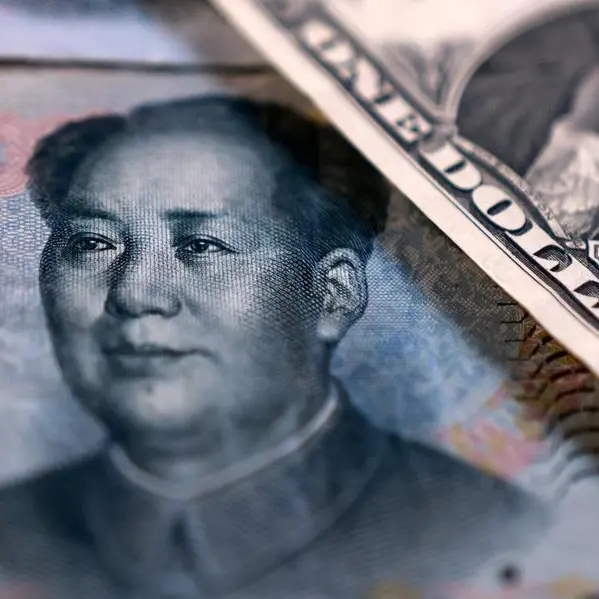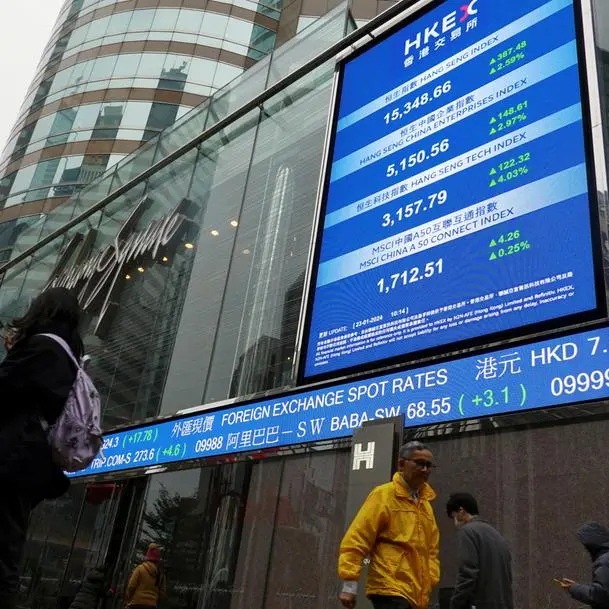PHOTO
China manufacturing activity turned in another soft performance in August, contracting for a fifth straight month, and adding to the view that the world's second-largest economy is struggling to reignite growth.
But while the economic data has been weak, China's imports of most major commodities have been largely unaffected, and arrivals of key resources such as crude oil, iron ore and coal appear to have accelerated in August.
The official purchasing managers' index (PMI) rose to 49.7 from 49.3 in July, the National Bureau of Statistics said on Thursday.
While this did beat a Reuters forecast for a reading of 49.4, the outcome was still below the 50-point level demarcating contraction from expansion.
The sluggish PMI adds to economic data showing a worsening property slump, falling credit growth and weak consumer spending.
All the recent data should be negative for imports of major commodities, but volumes in the world's biggest commodity buyer have been holding up, and in some cases gaining.
Iron ore imports are forecast to rise to 106.1 million metric tons in August, according to Refinitiv vessel-tracking data, while commodity analysts Kpler have them pegged at 108.1 million.
If the customs data aligns with the forecasts, it would be the strongest month for iron ore imports this year and a strong gain from the official figure of 93.48 million tons.
For the first seven months of the year, customs data show iron ore imports up 6.9% to 669.5 million tons, which is strong performance relative to the weakness seen in the key steel consuming sectors of construction and manufacturing.
Part of the reason for the strength in iron ore imports has been the need to rebuild port inventories, which dropped to a three-year low of 116.9 million tons in the week to Aug. 18.
They did recover slightly to end at 118.6 million tons in the seven days ended Aug. 25, but they remain below the historical norms for this time of year.
COAL, CRUDE
Similar to iron ore, China's imports of seaborne coal are also expected to be robust in August, with Refinitiv estimating arrivals of 31.2 million tons, while Kpler expects 34.3 million.
Coal imports have been strong since March as the country turned to thermal generation to make up for weaker-than-usual hydropower.
Domestic coal output has also been constrained in recent weeks as safety inspections have increased, resulting in higher domestic prices.
The higher local prices mean seaborne coal is competitive, which has helped boost imports, especially from Indonesia and increasingly from Australia, which saw an unofficial ban on imports lifted earlier this year as relations between the two countries improved.
Crude oil imports are also expected to recover in August from July, with Refinitiv Oil Research estimating arrivals of 11.72 million barrels per day (bpd), up from the official figure of 10.33 million bpd in July.
The July outcome was the weakest since January and the recovery in August is more reflective of strength in China's exports of refined fuels, rather than a case of strong domestic demand.
Whether China maintains strength in crude imports will largely depend on whether its refiners continue to export large volumes of diesel and gasoline.
Certainly, the higher crude prices sparked by the ongoing output cuts by the OPEC+ group, and the additional voluntary 1 million bpd production cut by top exporter Saudi Arabia, are likely to encourage China's refiners to trim imports and turn to their ample stockpiles.
The rally in crude prices since June should start to show up in China's crude imports from September onwards, given the lag between when cargoes are arranged and delivered.
Overall, it appears that factors other than the strength of China's economy are behind the still solid imports of iron ore, coal and crude oil.
A major commodity that appears more aligned with the lacklustre economic data is copper, with imports of unwrought copper down 10.7% in the first seven months of the year compared to the same period in 2022.
The opinions expressed here are those of the author, a columnist for Reuters.
(Editing by Kim Coghill)





















